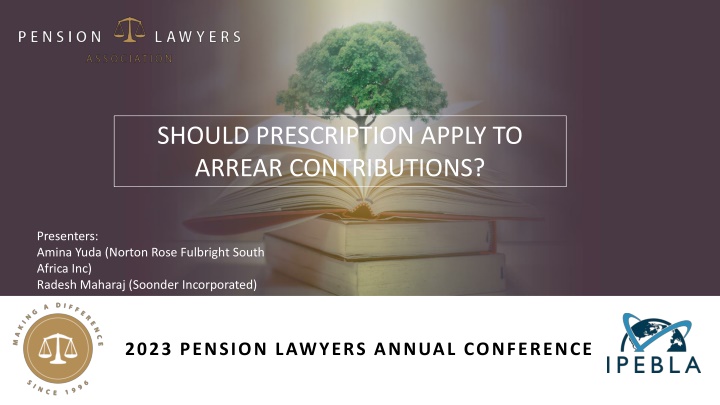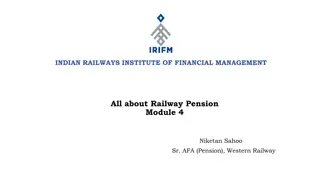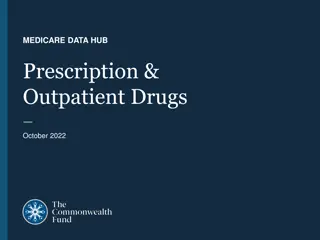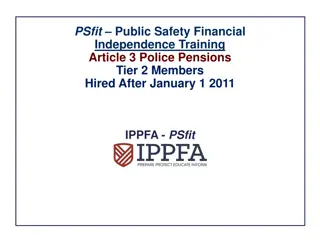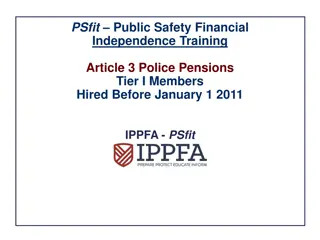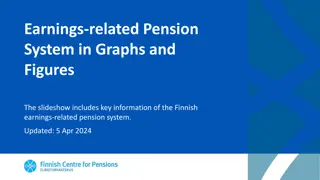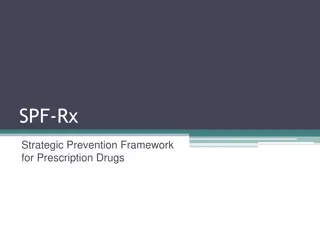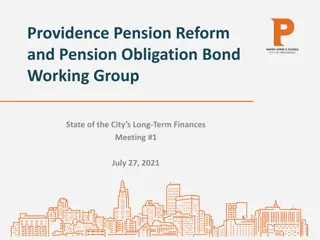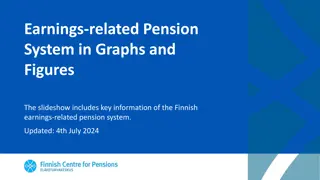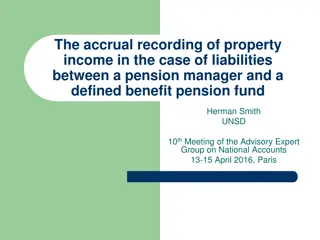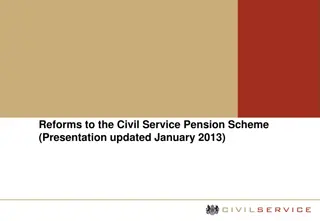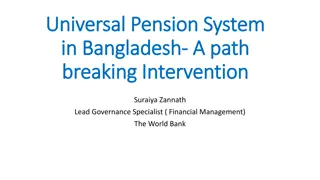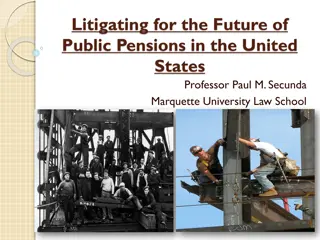Prescription and Arrear Contributions in Pension Law
Contributions are crucial for pension funds, with arrear contributions arising when payments are not made on time. Late payment interest applies to arrear contributions, prompting legal steps if ignored. Sanctions vary from termination to legal action, highlighting the importance of timely contributions. Understanding prescription in the context of arrear contributions is key for employers, members, and relevant authorities.
Download Presentation

Please find below an Image/Link to download the presentation.
The content on the website is provided AS IS for your information and personal use only. It may not be sold, licensed, or shared on other websites without obtaining consent from the author.If you encounter any issues during the download, it is possible that the publisher has removed the file from their server.
You are allowed to download the files provided on this website for personal or commercial use, subject to the condition that they are used lawfully. All files are the property of their respective owners.
The content on the website is provided AS IS for your information and personal use only. It may not be sold, licensed, or shared on other websites without obtaining consent from the author.
E N D
Presentation Transcript
SHOULD PRESCRIPTION APPLY TO ARREAR CONTRIBUTIONS? Presenters: Amina Yuda (Norton Rose Fulbright South Africa Inc) Radesh Maharaj (Soonder Incorporated) 2023 PENSION LAWYERS ANNUAL CONFERENCE
SOME BACKGROUND Why are contributions important? In DC funds, a member s Share of Fund (and by extension their fund benefit) is reliant on the fund receiving and investing contributions timeously (in DB funds the result of not paying contributions takes longer to unwind but leads to a financially unsound fund as liabilities eventually exceed assets) Section 13A of the Pension Funds Act places an obligation on employers to: 1. Compile payment schedules for all its retirement fund members; and 2. Timeously pay all contributions to the retirement fund.
WHAT ARE ARREAR CONTRIBUTIONS? All contributions to be paid to the fund (in underwritten funds, this would be to the insurer) by the employer on or before the 7th day of the month following the month for which they are due. The FSCA has permitted some funds, such as bargaining council funds, to allow employers to pay by the 15th of each month this by granting exemptions. With the advent of the FSRA, it may very well be possible to utilise extensions rather than exemptions for this purpose. All contributions not paid by the due date become arrear contributions. Similarly, the amount of under-paid contributions also become arrears after the due date Late payment interest becomes payable on arrear contributions, so the errant employer must pay the amount of arrear contributions plus LPI on it.
THE CAST The Employer The Member The Fund Reporting Person Monitoring Person Board of Management FSCA NPA SAPS
THE SANCTIONS In commercial umbrella funds errant employer terminated after 90 days of non-payment. Is this good ? Is this acceptable conduct considering implications for members? Business as Usual Employer pays arrear contributions plus LPI Business Unusual legal steps to recover from employer and/or liable person/s at the employer Report to SAPS. Hopefully SAPS would be convinced there s sufficient evidence to prosecute and result is a referral to the NPA for prosecution contrary to popular belief, there are a few examples of these cases! Report to FSCA it will be interesting to see outcomes here as FSCA has indicated to Batseta that it has jurisdiction over employers Complaint to Pension Funds Adjudicator Action and/or regulatory sanctions against Fund, Board of Management, Principal Officer, Reporting person, monitoring person, administrator?
PRESCRIPTION IN THE CONTEXT OF ARREAR CONTRIBUTIONS Contributions are seen as amounts sounding in money, or debts, for purposes of prescription and section 12 of the Prescription Act applies, i.e. 3 year period for a creditor to institute legal process for recovery, failing which the debt prescribes. Courts treat each monthly arrear contribution by an employer as a singular event, so the three year period must be calculated in this manner rather than looking at the last date of non-payment. Courts have also said LPI also subject to 3 year prescription. In effect, if legal proceedings for the collection of arrear contributions are not instituted by a fund against the errant employer and/or its liable person/s within 3 years, prescription applies and can be raised as a defence. Would this affect criminal prosecution?
THE ADJUDICATOR, TIME-BARRING AND PRESCRIPTION To be clear section 30I of the PFA is a time-barring provision which merely uses the 3 year period in section 12(3) of the Prescription Act to determine whether ANY complaint can be considered by the Adjudicator or not. As retired Judge Harms of the FS Tribunal has noted on several occasions, s30I is NOT a prescription period but a time-barring provision, effectively prohibiting the Adjudicator from considering any complaint (whether or not it concerns a debt or not) from being heard by the Adjudicator.
WHAT DOES CASE LAW SAY ON THE ISSUE? Even with reference to the statutory obligation to ensure contributions are paid and interest on outstanding amounts is paid (section 13A(7) of the PFA), the claim prescribes after a period of 3 years. When does prescription get interrupted? (Consider Private Security Sector Provident Fund v Isidingo Security Services (t/a Unitrade (Pty) Ltd): Kwa-Zulu Natal Division of the High Court Pietermaritzburg, Case No 3048/2021P) It is incumbent on an employee to scrutinize their payslip for any gaps in the payments of contributions in order to claim payment of outstanding contributions against their employer; failure to do so could result in a claim of outstanding contributions prescribing. (Consider Faltrans CC t/a Freight Star v Pension Funds Adjudicator & 3 Others, Case No: PFA 62/2022)
RE-CONSIDERATION OF THE LAW Current law on prescription of arrear contributions doesn t achieve the correct outcome Who benefits from not paying contributions? Who suffers from it? Was it intended?
TIME FOR A RE-THINK Consequences:- Trustee/PO/Reporting person/Administrator/Insurer sued for errant employers prescribed contributions Would a trustee take up a board seat if aware personal liability could arise? For commercial umbrella funds are the members informed of the arrear contributions? Would retirement funds be insurable? What impact on the regulator?
AMEND THE LAW Prescription Act permits laws which provide specific time periods of prescription Amend the PFA or FSRA, include in COFI Act to allow that arrear contribution claims do not prescribe for a specified period (this in consultation with retirement funds to determine the period) This does not mean that trustees/PO/reporting person etc are allowed to be complacent nothing stops the regulator from imposing sanctions on them but it also does not allow the main protagonist in this saga the non-paying employer, from getting away with it . Fits into the framework of just and equitable laws and also law that fits with the correct outcomes as required by our market conduct based financial services model.
